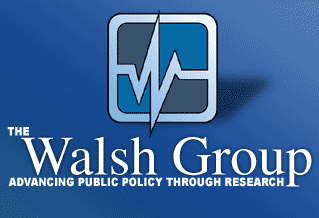
Fighting Addiction, SOS Offers a Secular Alternative to AA
Operating without prayers or a spiritual agenda, the group celebrates its 20th anniversary with a conference today.
By Patricia Ward Biederman, Times Staff Writer
Eighteen years ago, Larry B. was newly sober when he got up at an Alcoholics Anonymous meeting and said he was troubled by the 12-step program's emphasis on God.
Shortly afterward, someone slipped the San Fernando Valley man a note: "Have you tried SOS?"
Larry took the stranger's advice and sought out SOS, now called Save Our Selves or Secular Organizations for Sobriety. When Larry discovered it in the late 1980s, SOS was one of the few support groups for those trying to overcome addiction without the steps or references to the higher power that are central to the AA tradition.
Because he is a nonbeliever, Larry was relieved that SOS didn't expect him to turn his will and life "over to the care of God as we understand Him," as described in the third of AA's 12 steps.
In contrast, Larry, now in his late 50s, said SOS offered "the type of sobriety I could wear right off the rack, with no alterations in my lifestyle except not drinking."
SOS will celebrate its 20th anniversary today with an international conference at the Center for Inquiry-West, 4773 Hollywood Blvd., Hollywood, home of the secular humanist organization and headquarters of SOS.
SOS founder Jim Christopher, 63, said the group differs from faith-based recovery programs in putting the individual in charge of overcoming his or her addictions.
"My sobriety is based not on the existence of SOS or any other entity or higher power but on the recognition that I can't drink or use and get away with it," he said.
Christopher, who once downed a fifth of vodka a day, said he has not had a drink since April 24, 1978. He said he did not go into a treatment program but found his own way to be sober. He tried AA, the largest and most influential support group for recovering alcoholics, but was alienated by what he saw as its religious philosophy.
Founded in North Hollywood in 1985, SOS has more than 100,000 members in the United States and abroad. Many, but not all, of its members are atheists, secular humanists or other non-Christians. It is the largest secular sobriety group in the world, Christopher said.
An SOS meeting differs from a typical AA meeting. Instead of using the standard AA introduction, "Hi, I'm Jim, and I'm an alcoholic," Christopher usually opens meetings by saying, "Hi, I'm Jim, and I'm a sober alcoholic" because "that's accurate," he said. Others prefer something purely social, like "I'm Judy, and I'm happy to be here tonight."
People at SOS meetings rarely tell horror stories about how badly they behaved while drunk or high on drugs, Christopher said. At the 12-step meetings he attended, he came to dread the recital of "war stories" as a perverse form of one-upmanship.
And SOS has neither prayers nor a spiritual agenda, he said. The only purpose is to stay sober.
"It's great not to steal hubcaps and to be the best person you can be, but you can be a jerk and stay sober," Christopher said. "It's a separate issue…. As one Catholic lady in SOS said, she wanted separation of church and recovery. 'I already have a religion. I don't need another.' I've heard that too."
Christopher is careful not to bad-mouth AA: "We're not saying we're better than AA or 'Down with AA,' but we are saying there's a need for alternatives and options."
But he does regard AA as "a religion in denial" and rolls his eyes at "the bumper sticker language" of such slogans as "Let go. Let God."
AA, however, says belief in God is not a requirement for participation.
Julio, who like other AA members does not give his last name, is on the staff of AA's general service office for the United States and Canada, in New York City.
He said: "The only requirement is the desire to stop drinking. There are many atheists and agnostics who are members of AA and find a way to stay sober and find their own spiritual path. It is a personal program. It's basically a very inclusive program. That's why we only have one requirement: a desire to stop drinking."
According to its official website, AA is not allied with any sect or denomination and "does not wish to engage in any controversy."
Also expected to attend today's conference in Hollywood are members of Women for Sobriety, one of the oldest alternative sobriety groups and the first designed specifically for women, in 1976. AA's first step, acknowledging powerlessness over alcohol, was a stumbling block for sociologist Jean Kirkpatrick, founder of the women's group.
Arcadia resident Michaelyn Fidone, regional moderator for Women for Sobriety, said: "Women are basically born into the world as second-class citizens, and we don't need to experience any more powerlessness than we already have."
In this spirit, she introduces herself at meetings by saying, "I'm Michaelyn, and I'm a competent woman."
Like SOS, Women for Sobriety holds that "sobriety is a separate issue" from religion or spirituality, Fidone said.
SOS is open to people trying to overcome any addiction — to alcohol, drugs, gambling and sex — as well as those with eating disorders, Christopher said. Friends and family are also welcome.
At meetings, members often share their hard-won discoveries of what helps sobriety and what threatens it. As part of Larry B.'s recovery, he developed a "tool kit" described in a popular SOS pamphlet. His tips range from avoiding bars to observing people who are drunk and asking yourself, "Is that a wonderful life?"
SOS offers "a way, not the way," Christopher said.
Barry Solof, a member of the SOS International Advisory Board, is a physician and a fellow of the American Society of Addiction Medicine who heads the local service area for Kaiser Permanente's addiction medicine department. Emphasizing that he was speaking as an individual, not for Kaiser Permanente, Solof said: "The fact is, no matter how they skirt the issue … there's a heavy emphasis on spirituality in AA," and "many people are not comfortable with that."
AA and groups based on it are usually the only ones recommended to people in recovery, according to studies. But when Solof counsels patients dealing with addiction, he tries to match the person with a support program. If he sees a cross around a person's neck, he doesn't hesitate to recommend AA. But he also tells patients about secular alternatives, he said.
Sociologist Randolph Atkins Jr. is analyzing data from a national survey he conducted for the National Institute on Drug Abuse on attitudes of 1,067 people in recovery support groups, including SOS. Atkins, who is scheduled to speak at the conference, said the goal is to develop an assessment tool to help counselors match people in recovery with appropriate support.
In spite of the continuing prominence of AA, he said, there is growing recognition in addiction treatment that "one size does not fit all. Different people need different things."
|

